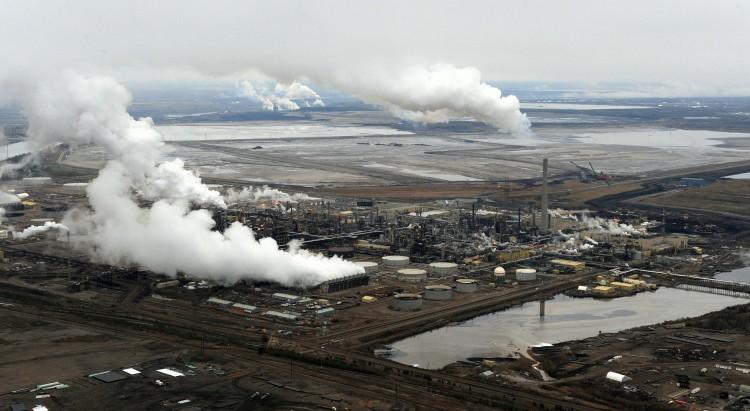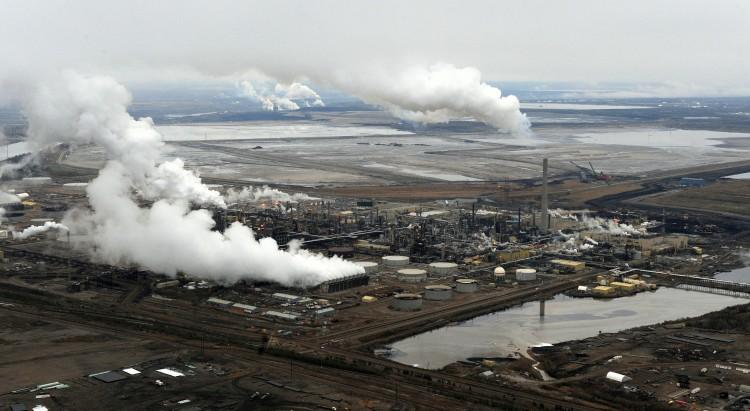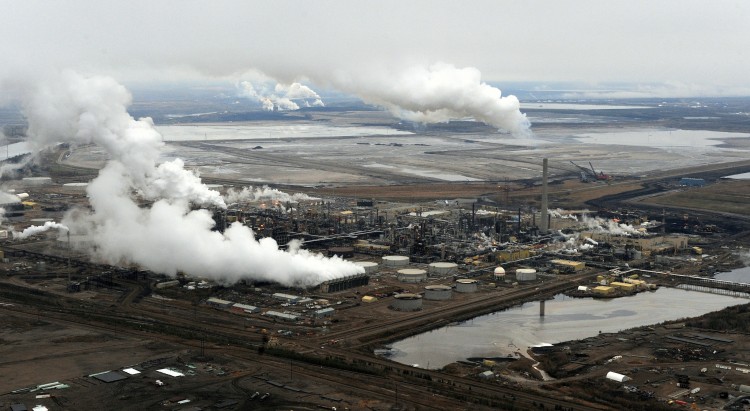WASHINGTON—Approval of the Keystone XL Pipeline is shaping up to be a pivotal issue for President Barack Obama, with pro-oil groups arguing that it is critical to national security and environmentalists declaring it a dangerous contributor to greenhouse gas emissions.
Obama highlighted climate change in his State of the Union Address, saying that rising temperatures and extreme weather events have made action inevitable.
“For the sake of our children and our future, we must do more to combat climate change,” the president said.
He called on Congress to pursue a market-based solution to climate change, warning that if they did not, he would develop his own strategies.
“I will direct my Cabinet to come up with executive actions we can take, now and in the future, to reduce pollution, prepare our communities for the consequences of climate change, and speed the transition to more sustainable sources of energy,” Obama said.
In Washington, D.C., Sunday, over 40,000 people rallied in support of action on climate change, marking the Keystone XL Pipeline as a key issue.
“President Obama holds in his hand a pen and the power to deliver on his promise of hope for our children,” Michael Brune, executive director of the Sierra Club, said at the rally. “Today, we are asking him to use that pen to reject the Keystone XL tar sands pipeline, and ensure that this dirty, dangerous, export pipeline will never be built.”
Decision Looming
The Keystone XL Pipeline is a 1,179-mile, 36-inch-diameter crude oil pipeline that will carry crude oil from Canada’s tar sands in northeast Alberta across the border to Steele City, Neb., according to the Keystone website.
The pipeline will link multiple destinations within the United States, including in North and South Dakota, Kansas, Missouri, Illinois, Texas, and the Gulf region.
Obama rejected approval of the pipeline last year on the grounds that it threatens Nebraska’s environmentally sensitive Sandhills region. He did approve, however, sections of the pipeline further south, indicating that he is not completely closed to the idea of it being developed in the long-run.
TransCanada Corporation, the company responsible for the pipeline, has since changed the Nebraska route. The changes were approved by Gov. Dave Heineman (R-Neb.) in January of this year, and Obama is expected to announce a decision on the pipeline in the spring.
Polarizing Issue
There are strong forces pushing for and against the pipeline’s development, as the full weight of the oil industry is up against an invigorated environmental movement.
According to a congressional report titled “Public Support for Climate and Energy Policies in September 2012,” public opinion has swung strongly in support of action on climate change. Over three-quarters of Americans surveyed said that they believe global warming should be a high priority, and 88 percent said that the United States should make an effort to reduce global warming, even if it entails economic costs.
Proponents of the pipeline have said that it will provide U.S. oil producers with increased access to top U.S. oil refineries, create jobs, and relieve U.S. dependence on foreign crude oil supplies.
“The American people are still waiting for President Obama to approve the landmark energy infrastructure project that will deliver affordable energy, jobs, and greater energy security to America,” according to a House Energy and Commerce Committee Feb. 11 statement.
It is estimated that up to 830,000 barrels of oil per day will be transported to Gulf Coast and Midwest refineries through the pipeline.
Environmentalists argue that as rising temperatures and extreme weather events become more pronounced, it is not the time to invest in an energy source that will significantly increase greenhouse gas emissions.
“The major concern is the amount of carbon contained in the tar sands, which is estimated to be 240 gigatons, roughly half of what many scientists say we can burn if we want to avoid runaway climate change,” said Daniel Kessler, spokesman for the environmental advocacy group 350.org, which organized Sunday’s rally.
Greenpeace Canada ranked Canada’s tar sands as 5th of the 14 largest carbon-intensive projects in the world.
Oil sands production is expected to increase greatly with the pipeline’s approval, a Pembina Institute report for Canadian clean energy advocates, predicting that production will triple by 2030.
Risk of Pollution
There are also concerns that the pipeline, which will cross prime U.S. farming and ranching lands carrying heavy crude oil, could leak.
According to Kessler, leaks in U.S. pipelines are already common.
“It is not a question of if it is going to happen—it’s when,” he said.
Proponents of the pipeline argue that the process is not as bad as environmentalists claim, and that any risks will be further reduced when carbon-capture technology is developed in coming years.
In an editorial in support of Keystone, editors of Nature international journal argue that there are worse oil-producing outfits in California than in the tar sands. They explained that the tar sands will still be developed whether or not the pipeline is approved. There are environmental concerns with tar sands, according to the journal, but Obama should approve Keystone and use the process to put in place strong environmental guidelines.
“Tar-sands development raises serious air- and water-quality issues in Canada, but these problems are well outside Obama’s jurisdiction,” the editorial reads.
Environmentalists are unlikely to be appeased, however. Global warming is already at critical levels, they contend, and the United States should be looking at reducing its dependence on fossil fuels instead of fostering it.
Sens. Bernie Sanders (I-Vt.) and Barbara Boxer (D-Calif.), both opponents of Keystone, introduced legislation last Thursday on climate change, called the Climate Protection Act of 2013, which puts a fee on carbon pollution emissions and directs funds to investments on sustainable energy technologies.
Sanders said that action on climate change is urgent, and that the bill, if enacted, could “reverse greenhouse gas emissions in a significant way,” as well as create jobs in the renewable energy sector.
“This fee on the largest fossil fuel polluters affects less than 3,000 entities nationwide but covers 85 percent of U.S. greenhouse gas emissions,” he said in an official statement introducing the legislation.
Kessler said that a price on carbon is only a matter of time, but a rejection of Keystone is a critical step along the way.
“If we can win fights like Keystone and show Congress and the administration that there is a growing climate movement, then I am very confident,” he said.






